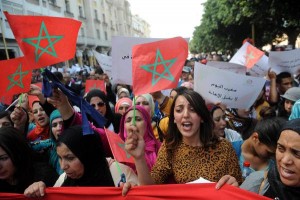ANSAmed
Almost 7,000 seats went to women at recent municipal elections in Morocco. Nevertheless, the country is still behind in a World Bank ranking on the discrimination of women in the workplace.
Out of 173 economies taken into consideration worldwide, including 19 in the Middle East and North Africa, Morocco ranks 26th among the worst in terms of gender gap.
A married woman in Rabat can have a bank account or own a firm but cannot be the head of the family. ‘Woman, Business and Law 2016’, the annual report of the World Bank highlights the tough reality.
Overall, 155 countries have come under scrutiny because they have at least a law preventing the glass ceiling from being broken and Morocco is among them as it has no laws against family abuse. Women in the workplace are 27%.
Women are guaranteed a percentage of seats in politics: 15% in Parliament and 33% in municipal and regional administrations.
Women are almost 17 million out of a total of about 30. But the demographic advantage does not play in their favor.
A joint report by NGOs monitoring Morocco noted that 62.8% of women has suffered some kind of gender-related abuse and that among the country’s 10 million illiterate, the gender gap between men and women is one to two.
The worst in the World Bank list were Saudi Arabia, Jordan and Iran for the highest number of laws against women, with legislation for example stating that husbands must give their consent if their spouses want to get a job or a passport.








